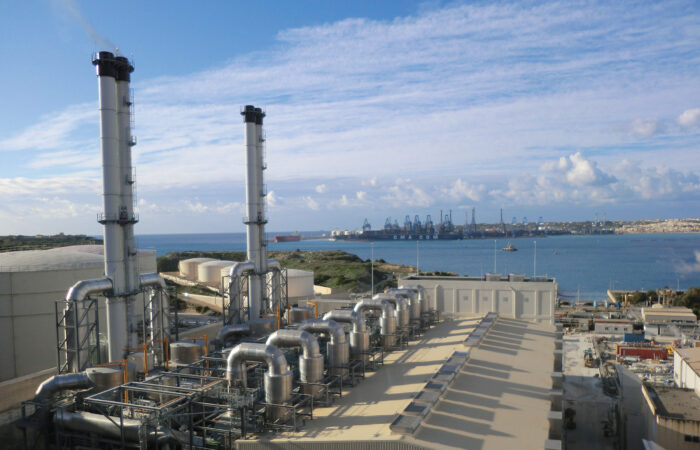Charles Ellinas*
Earlier in July, the EU published its ‘European Innovation Performance Scoreboard 2024’ and in June the IMF published its new ‘AI Preparedness Index Dashboard’. Both put Cyprus in good light in terms of innovation and artificial intelligence (AI).
European Innovation Scorecard
The European Innovation Scorecard (EIS) is an annual publication and is based on 32 indicators covering the economy, business and entrepreneurship, innovation profiles, governance and policy framework, climate change and demography. It aims to support policymakers, researchers, and stakeholders in understanding the innovation landscape, finding strengths and weaknesses, and formulating evidence-based policies to enhance innovation across Europe.
Cyprus ranked 13th among 39 European countries, classified as a ‘Strong Innovator’, with performance at 106.3% of the EU average in 2024. The leader was Switzerland at 138.4%, while the worst performer was Moldova at 23.2%. Among EU countries the best performer was Denmark, with Cyprus ranked 10th.
Similarly to the EU, Cyprus performance has been improving steadily since 2017, when the EIS was first published, especially since 2020. Where the country does well, is in terms of scientific publications from its universities and its increasing number of small-to-medium enterprises (SMEs) collaborating with others in R&D. Cyprus’ relative weaknesses are in terms of direct and indirect government support of business R&D, as a result of which, R&D expenditure in this sector is low.
Identified improvements since 2023 are in the areas of environment-related technologies, broadband penetration and the number of employed information and communications technology (ICT) specialists. But there were deteriorations in terms of venture capital expenditures, non-R&D innovation expenditures and exports of medium and high technology products.
In comparison to the rest of Europe, Cyprus does better in the turnover share of its SMEs and entrepreneurial activity. But it lacks in governance and policy framework, foreign direct investment (FDI) net inflows and climate change.
Since 2022, the EU adopted its ‘New European Innovation Agenda’ that aims ‘to position Europe at the forefront of the new wave of deep tech innovation and start-ups and help develop new technologies to address the most pressing societal challenges, and to bring them on the market.’ Cyprus participates in this.
Artificial Intelligence
The world is on the brink of an Artificial Intelligence (AI) technological revolution that could boost productivity and global growth and raise incomes around the world. But it could also replace jobs and deepen inequality. The IMF estimates that it could affect almost a-third of jobs around the world.
It offers vast potential to benefit society, but it needs the right policies so that it does not worsen overall inequality in society.
AI is already being integrated into businesses around the world at remarkable speed.
To help countries craft the right policies, the IMF has developed an AI Preparedness Index that measures readiness in areas such as digital infrastructure, human-capital and labor-market policies, innovation and economic integration, and regulation and ethics.
IMF AI Preparedness Index

Using the index, the IMF assessed the readiness of 174 countries, including Cyprus. The findings reveal that wealthier economies, including advanced and some emerging market economies, tend to be better equipped for AI adoption than low-income countries, though there is considerable variation across countries.
Cyprus is in the ‘doing better’ category, ranking 30th with an AI Preparedness Index of 0.63. The US and Netherlands rank top, at 0.77.
The IMF recommends that Cyprus should ‘prioritize AI innovation and integration, but at the same time it should develop robust regulatory frameworks.’ The aim should be to ‘cultivate a safe and responsible AI environment, helping maintain public trust.’
According to the European Commission’s Digital Economy and Society Index (DESI) 2022, Cyprus ranks 21st in the EU in terms of digital performance and competitiveness. The report highlights that ‘Cyprus has made significant progress in digital skills and integrating digital technology into businesses, which bodes well for the growth of AI startups in the country,’ but the AI startup scene is still in its infancy. ‘Fast-Forward’ states that an area where Cyprus does well is AI-powered FinTech solutions, ‘which are becoming increasingly popular due to Cyprus’s strong financial sector.’
The EU has put in place an ‘AI Act’, the ‘first-ever comprehensive legal framework on AI worldwide,’ to ensure that Europeans can trust what AI has to offer. Its aim is ‘to foster trustworthy AI in Europe and beyond, by ensuring that AI systems respect fundamental rights, safety, and ethical principles and by addressing risks of very powerful and impactful AI models.’
A ’European AI Office’ was established in February within the Commission to oversee the AI Act’s enforcement and implementation with member states, but also to ensure alignment on AI governance.
Cyprus government approved its national strategy on AI in 2020 with an implementation goal of 2026. This is ‘based on four main pillars: maximising investments through partnerships, creating national data spaces, promoting talent and lifelong learning, and the development of an ethical and trustworthy AI.’ But now this probably requires alignment to the EU AI Act.
There is government awareness that AI ‘presents not only opportunities but also significant challenges, and that it must be ensured that human rights, democracy, and the rule of law are protected in an ever-evolving digital environment.’
Clearly our universities and SMEs are driving innovation strongly. The potential is there, but ‘funding gaps and talent retention’ pose serious challenges. Imagine what would happen if these sectors received stronger support.
As Theodoros Loukaidis, director general of the Cyprus Research and Innovation Foundation, said ‘We are a research powerhouse, but we need to enhance the ability for researchers to make that transition, to protect intellectual assets and have access to funding.’ He was referring to spin-offs from research, for which there aren’t policies in place.
*Charles Ellinas is Senior Fellow at the Global Energy Centre of the Atlantic Council.




